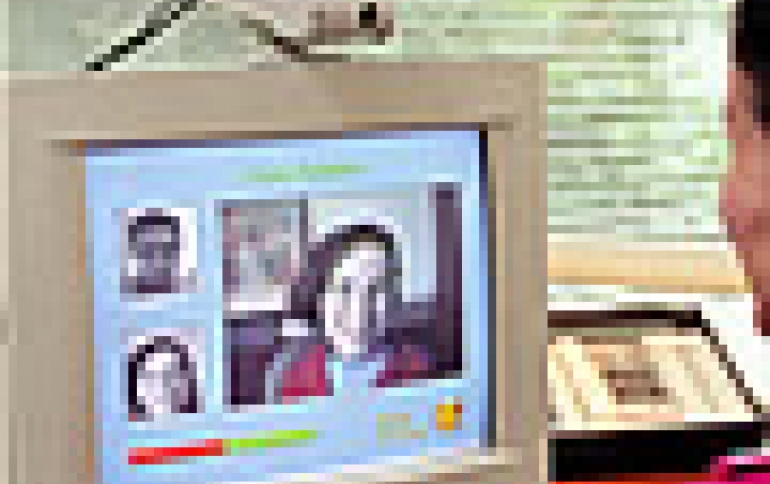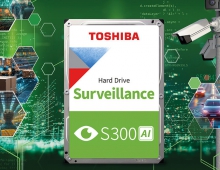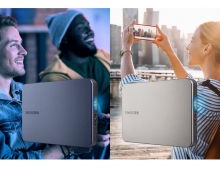
MIT and Toshiba to Develop Human-centric Computers
Toshiba announced collaboration with the Media Laboratory at the Massachusetts Institute of Technology (MIT) in the "GlobalMind Project," an ambitious program to bring cross-cultural common sense to computer systems.
The company hopes to explore new ways to give computers human-like understanding for applications such as Japanese text recognition and processing, car navigation, and robots.
The GlobalMind collaboration involves Toshiba working closely with Media Lab Professor Emeritus Marvin Minsky, a pioneer in the field of artificial intelligence (AI), and other Media Lab researchers, to establish a large-scale, multilingual common-sense knowledge database. Toshiba will contribute to this by establishing a Japanese-language-based database, and by linking "common sense" data with the company's natural-language processing and knowledge-processing technologies.
"The GlobalMind project allows us to build on our relationship with Professor Minsky and the Media Lab to promote human-centric technology, one of our key R&D activities," said Dr. Mutsuhiro Arinobu, corporate vice president and director of the Corporate Research & Development Center, Toshiba Corporation. "With GlobalMind, we hope to move significantly closer to realizing computers that understand the meaning of information and real-life situations, and to apply that to communication with people. This is one of the most crucial issues in AI."
To date, computers have been inherently dumb, only able to process commands and deliver results. Even the most powerful computer knows far less than a five-year-old child, whose brain has formed vast and intricate webs of knowledge. Toshiba sees participation in the "GlobalMind Project" as an exciting attempt to address this-to bring to computers an understanding of human beings, their situations and feelings, and how people recognize, understand and respond to information and its meaning in a real-life environment.
Toshiba sees advances in robotics as essential for creating support tools in all kinds of environments, including the home. In May 2005 Toshiba introduced two "life support partners,"-new robots with new capabilities. These include the ability to distinguish and respond to particular voices from among many coming from multiple directions, and to interact with the speakers by responding to a repertoire of commands. The robots also can visually recognize a registered individual and have the ability to follow that individual from place to place, even among groups of people. Toshiba sees application of the results of GlobalMind into robots as a promising avenue for advancing development of human-centric technology.
GlobalMind, launched in 2005, is the extension of the Open Mind Project that the MIT Media Lab initiated in 2000, and which now has gathered approximately 800,000 common-sense facts through the contribution of some 20,000 people. The intent is to teach computers all the "common-sense" things the average person knows but takes for granted: an understanding of the world and of what people everywhere experience every day. This includes concepts like: a son is younger than his mother; you can push something with a straight stick; $100 is a lot to pay for a sandwich; snow is cold and is made of millions of snowflakes; and a week is longer than a minute.
GlobalMind data, which is publicly available and freely downloadable, is a step in bringing the world of Open Mind to different languages and cultures. For while some cultural phenomenon are universal (eating when you are hungry, drinking when you are thirsty), some vary from culture to culture, or at least are expressed differently. The GlobalMind Project is intended to reflect this by extending the OpenMind Project to more languages, including Japanese, Korean, Mandarin, French and Spanish. The ultimate goal is to gather common-sense knowledge from across different cultures and from as many countries as possible.
To make these new systems resourceful enough, Professor Minsky argues that they also will need to have multiple ways to use their new collections of general knowledge. "Traditional programs often got stuck because they were based on using a single technique," he says, "but this project plans to equip each machine with many alternative ?ways to think.' Then, whenever one of those methods fails, the system can switch to another technique, so that it can help us achieve a wider range of human goals and needs."
Toshiba is a longtime collaborator with the Media Lab dating back to 1985.
The GlobalMind Website is now publicly available at http://globalmind.media.mit.edu/.
The GlobalMind collaboration involves Toshiba working closely with Media Lab Professor Emeritus Marvin Minsky, a pioneer in the field of artificial intelligence (AI), and other Media Lab researchers, to establish a large-scale, multilingual common-sense knowledge database. Toshiba will contribute to this by establishing a Japanese-language-based database, and by linking "common sense" data with the company's natural-language processing and knowledge-processing technologies.
"The GlobalMind project allows us to build on our relationship with Professor Minsky and the Media Lab to promote human-centric technology, one of our key R&D activities," said Dr. Mutsuhiro Arinobu, corporate vice president and director of the Corporate Research & Development Center, Toshiba Corporation. "With GlobalMind, we hope to move significantly closer to realizing computers that understand the meaning of information and real-life situations, and to apply that to communication with people. This is one of the most crucial issues in AI."
To date, computers have been inherently dumb, only able to process commands and deliver results. Even the most powerful computer knows far less than a five-year-old child, whose brain has formed vast and intricate webs of knowledge. Toshiba sees participation in the "GlobalMind Project" as an exciting attempt to address this-to bring to computers an understanding of human beings, their situations and feelings, and how people recognize, understand and respond to information and its meaning in a real-life environment.
Toshiba sees advances in robotics as essential for creating support tools in all kinds of environments, including the home. In May 2005 Toshiba introduced two "life support partners,"-new robots with new capabilities. These include the ability to distinguish and respond to particular voices from among many coming from multiple directions, and to interact with the speakers by responding to a repertoire of commands. The robots also can visually recognize a registered individual and have the ability to follow that individual from place to place, even among groups of people. Toshiba sees application of the results of GlobalMind into robots as a promising avenue for advancing development of human-centric technology.
GlobalMind, launched in 2005, is the extension of the Open Mind Project that the MIT Media Lab initiated in 2000, and which now has gathered approximately 800,000 common-sense facts through the contribution of some 20,000 people. The intent is to teach computers all the "common-sense" things the average person knows but takes for granted: an understanding of the world and of what people everywhere experience every day. This includes concepts like: a son is younger than his mother; you can push something with a straight stick; $100 is a lot to pay for a sandwich; snow is cold and is made of millions of snowflakes; and a week is longer than a minute.
GlobalMind data, which is publicly available and freely downloadable, is a step in bringing the world of Open Mind to different languages and cultures. For while some cultural phenomenon are universal (eating when you are hungry, drinking when you are thirsty), some vary from culture to culture, or at least are expressed differently. The GlobalMind Project is intended to reflect this by extending the OpenMind Project to more languages, including Japanese, Korean, Mandarin, French and Spanish. The ultimate goal is to gather common-sense knowledge from across different cultures and from as many countries as possible.
To make these new systems resourceful enough, Professor Minsky argues that they also will need to have multiple ways to use their new collections of general knowledge. "Traditional programs often got stuck because they were based on using a single technique," he says, "but this project plans to equip each machine with many alternative ?ways to think.' Then, whenever one of those methods fails, the system can switch to another technique, so that it can help us achieve a wider range of human goals and needs."
Toshiba is a longtime collaborator with the Media Lab dating back to 1985.
The GlobalMind Website is now publicly available at http://globalmind.media.mit.edu/.





















